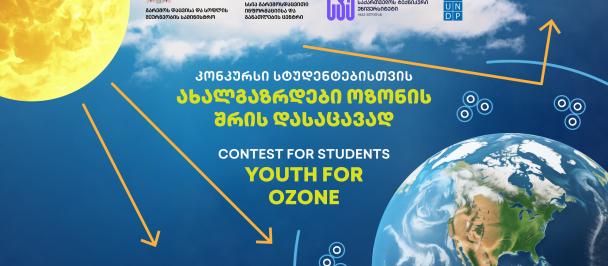UNDP and the Ministry of Environmental Protection and Agriculture bring together ten Georgian municipalities to discuss disaster risks and response measures
Local solutions to climate-induced disasters
March 11, 2022
Photo: UNDP
The United Nations Development Programme (UNDP) and the Environmental Information and Education Centre at Georgia’s Ministry of Environmental Protection and Agriculture invited mayors and local councils' chairpersons from 10 municipalities (Abasha, Akhmeta, Gori, Khobi, Kobuleti, Lagodekhi, Samtredia, Senaki, Sighnaghi and Telavi) to discuss measures and investments needed to reduce climate-induced disaster risks in Georgia’s regions.
The two-day discussion focused on local activities that aim to protect people and the economy and increase awareness about climate-induced hazards.
“Adapting to climate change is one of the Government’s priorities. We are working to introduce a preventive approach to climate-induced disasters and establish a nationwide system of monitoring, forecasting and early warning,” said Deputy Minister of Environmental Protection and Agriculture Solomon Pavliashvili.
“Climate resilience is critical. Local solutions and citizen engagement are key to establishing effective mechanisms that will help Georgia adapt to climate change”, said UNDP Resident Representative in Georgia Nick Beresford.
All 10 municipalities engaged in the discussion are prone to the most common climate-induced hazards that lead to disasters in Georgia. This includes floods, landslides, mudflows, droughts, avalanches, hail and windstorms. Extreme flood events cost the country over US$190 million per year. The frequency of landslides has increased by 3.4 times since 2008.
In 2019, Georgia launched a robust seven-year programme to enact policies and make the investments needed to adapt to climate change and replace the traditional reactive approach to disaster management with the one fully grounded on prevention.
This ambitious initiative is a joint venture between the government and UNDP that draws on US$74 million provided by the Green Climate Fund and the governments of Georgia, Sweden and Switzerland.
The programme is set to introduce climate adaptation solutions in the basins of 11 Georgian rivers where the disaster risk is especially high, improve climate change awareness and assist local municipalities and communities in developing and introducing climate-savvy solutions.
Media contacts
- Sophie Tchitchinadze, UNDP, +995 599 196907, sophie.tchitchinadze@undp.org
- Ira Sulava, UNDP, +995 599 579105, irine.sulava@undp.org
- Nana Chinchilakashvili, MEPA, +995 599 502619, nana.chinchilakashvili@mepa.gov.ge

 Locations
Locations




